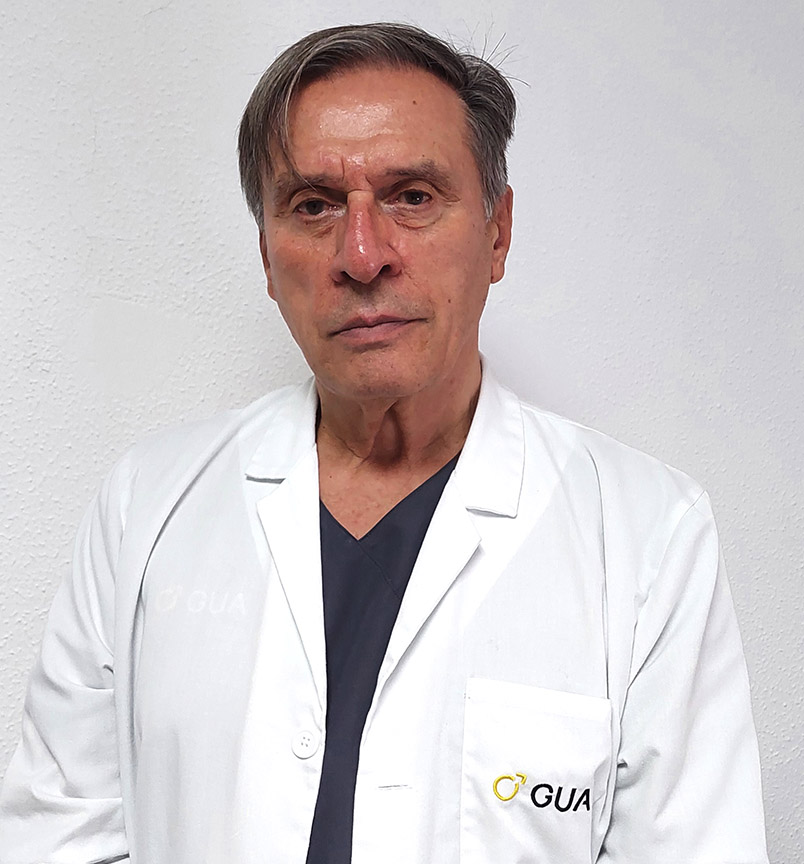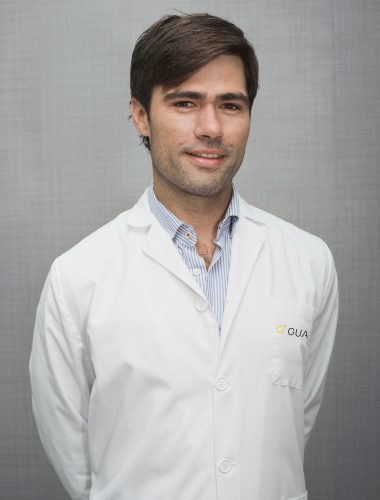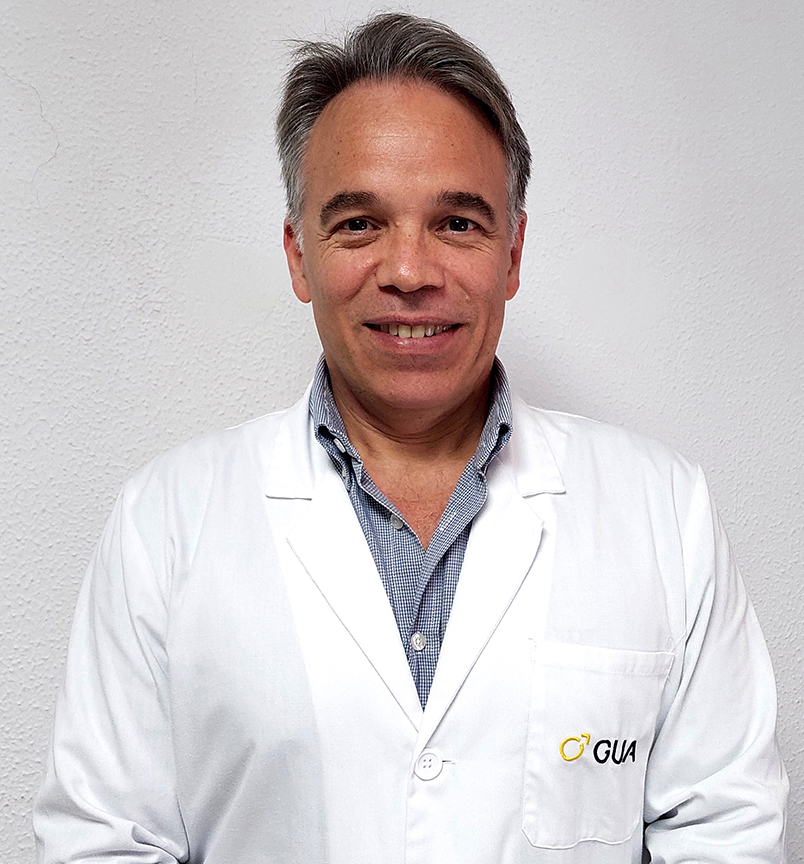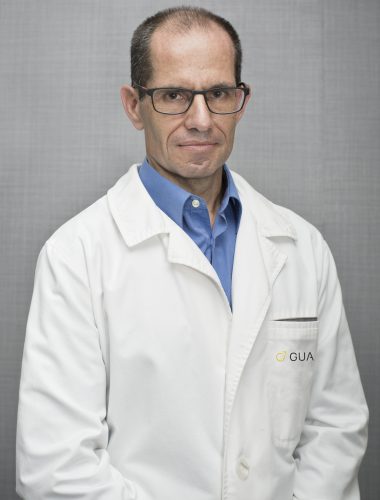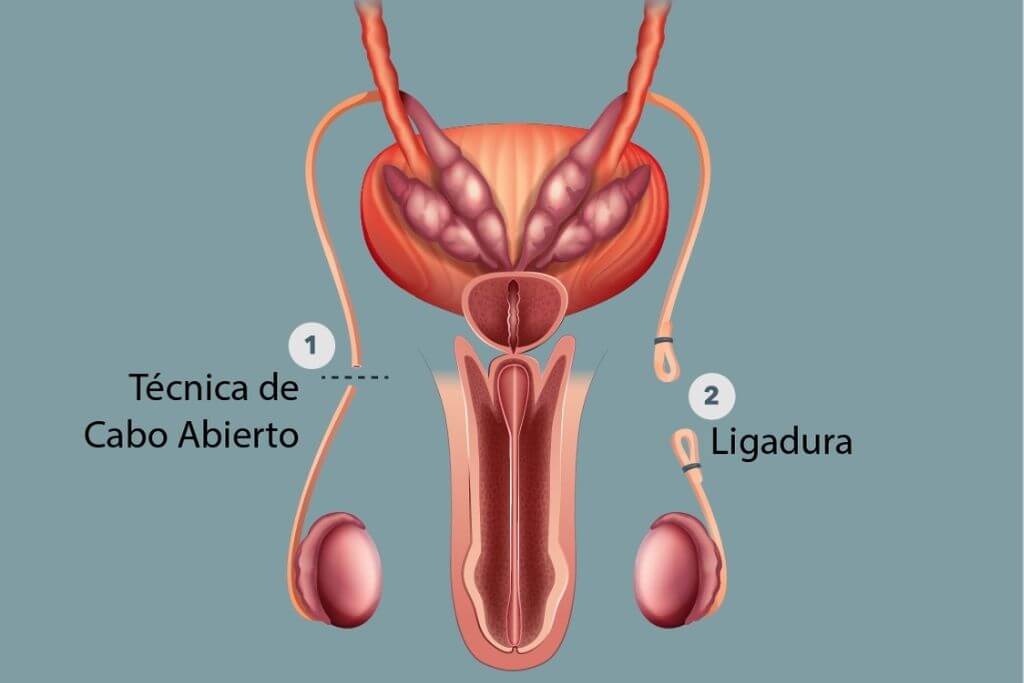
Vasectomy
Vasectomy is a surgical procedure that involves severing and/or tying the vas deferens, the tubular structures that transport sperm from the epididymis to the ejaculatory ducts. Vasectomy does not affect sex life. It does not decrease sexual desire because it does not influence the production of the male hormone testosterone. Nor does it affect the ability to have an erection or to ejaculate semen.
With a simple technique, through a minimal incision, with local anaesthesia or with added sedation if the patient prefers, we offer results of 100% absence of spermatozoa in semen in the almost 30 years that our centre has been carrying out this surgery. This is a safe technique with almost total absence of complications, which significantly increases the chances of reversal in the event that the patient might need it.
We use the open end technique because it has fewer complications such as post-vasectomy testicular pain syndrome and better patient satisfaction.
Vasectomy surgery details
What problem does this treatment solve?
It is a contraceptive technique: It separates sexual intercourse from the risk of pregnancy.
Areas to be treated:
Scrotum and vas deferens.
What does the pre-op consist of?
Blood test if under local anaesthesia or sedation.
What is the approximate duration of the procedure?
35 minutes.
Equipment:
Not required.
Does it require anaesthesia?
- Local anaesthesia or Sedation + local anaesthesia: (Patient wakes up without pain).
- Depending on the patient's choice.
Does it require admission or is it ambulatory?
It is an outpatient procedure.
How should the patient be cared for after the operation?
Relative rest 1 day.
Wound care at our Centre.
Approximate recovery time:
- 1 day for light activity.
- You can return to work in 24-48 hours.
- 7 days for sexual activity.
- 21 days for contact sports.
Does it leave scars?
Minimal scar in the centre of the scrotum of less than 1 cm.
What results should the patient expect?
When instructed, you will be able to have sexual intercourse without risk of pregnancy and without any discomfort.
Complementary treatments:
We check the absence of sperm in semen at 22 ejaculations after surgery and again 6 months after surgery. As in all our surgeries, this control up to 6 months is included in the budget of the surgery fees at no additional cost.
Frequently asked questions about vasectomy
What is vasectomy?
Vasectomy is one of the two male contraceptive systems that exist, together with the condom. It consists of removing the sperm from the man's semen, which allows him to continue having sexual intercourse with the same desire, erections, orgasm and a very similar volume of ejaculate. The testicle contributes 4% of its volume to the semen. The rest is seminal and prostatic fluid.
What is the vasectomy technique?
The technique consists of making a small cut in the scrotum, which is the bag of the testicles, and cutting the vas deferens, which is where the sperm are transported from the testicle to the prostate.
There are several vasectomy techniques, so the patient must know which one is going to be performed. In our centre we perform the open end technique.
What is the advantage of the vasectomy technique we implement at GUA?
The advantage of the open end technique is that by not blocking the testicle by closing the duct we do not generate pressure, so the testicle does not suffer and there is less chance of post-vasectomy syndrome: chronic testicular pain due to the sustained increase in pressure on the obstructed testicle.
What is the aftercare after vasectomy?
After the operation, with minimal convalescence, the patient can lead a normal life from the following day, without subjecting the area to trauma (sports, motorbike, bicycle or physical effort). Patients can return home by car, although ideally they should be accompanied, and the following day they can work if it is not a physical job. Sexual relations can be resumed after 7 days.
What are the controls and the guarantee of success of vasectomy?
The disappearance of the sperm is not immediate and must be "cleaned" by ejaculation. This can be done by masturbation or if there is sexual intercourse at the beginning, the usual precautions must be taken. We normally check the vasectomised patient's semen after 22 ejaculations. When we check that there are no sperm in the semen, the patient is allowed to continue unprotected intercourse.
What are the possible complications of vasectomy?
They are rare and generally very well tolerated surgery, but may exist:
- Haematoma: The scrotum may become bruised, which is not a problem and disappears in a few days, or in more serious cases there may be an accumulation of blood in the scrotum, which may need to be drained.
- Inflammation of the area / pain: This is rare, less than 10% of those who have undergone surgery, and is closely related to the observation of rest on the first day.
Does vasectomy affect sexual performance?
Many men fear that a vasectomy may cause serious problems, but these fears are unfounded. But it should be stressed that itwill not affect sexual performance. Vasectomy does not affect sexual desire or any characteristic of sexuality except fertility. On the contrary, couples report a "second honeymoon" and greater sexual satisfaction (freedom from fear of pregnancy) after a vasectomy.
Can vasectomy be reversed?
It is reversible. It sometimes happens that due to social problems (new partner) or family problems (death), the patient regrets the decision taken or wishes to have offspring again. Vasectomy reversal is an important chapter in our scientific and healthcare activity. Vasectomy can be reversed with vaso-vasostomy surgery.
Does vasectomy affect the genital organs?
It will not cause permanent damage to the genital organs. There is very little risk of injury to the testicles, penis or other parts of your reproductive system during surgery. Injury to the testicle has been described but in inexperienced hands.
Does vasectomy increase the risk of cancer?
It will not increase the risk of certain cancers. While there was previously some concern about a possible link between vasectomy and testicular or prostate cancer, this study has been shown to be inconsistent (Iovanucci, JAMA, 1993).
Does vasectomy hurt?
It will not cause severe pain. If the patient is concerned about any pain, they should opt for sedation. With local anaesthesia, the pinpricks of the anaesthetic will be felt and there may be a pulling or stretching sensation during the surgery. Discomfort after surgery is statistically mild, infrequent and disappears after a few days.

